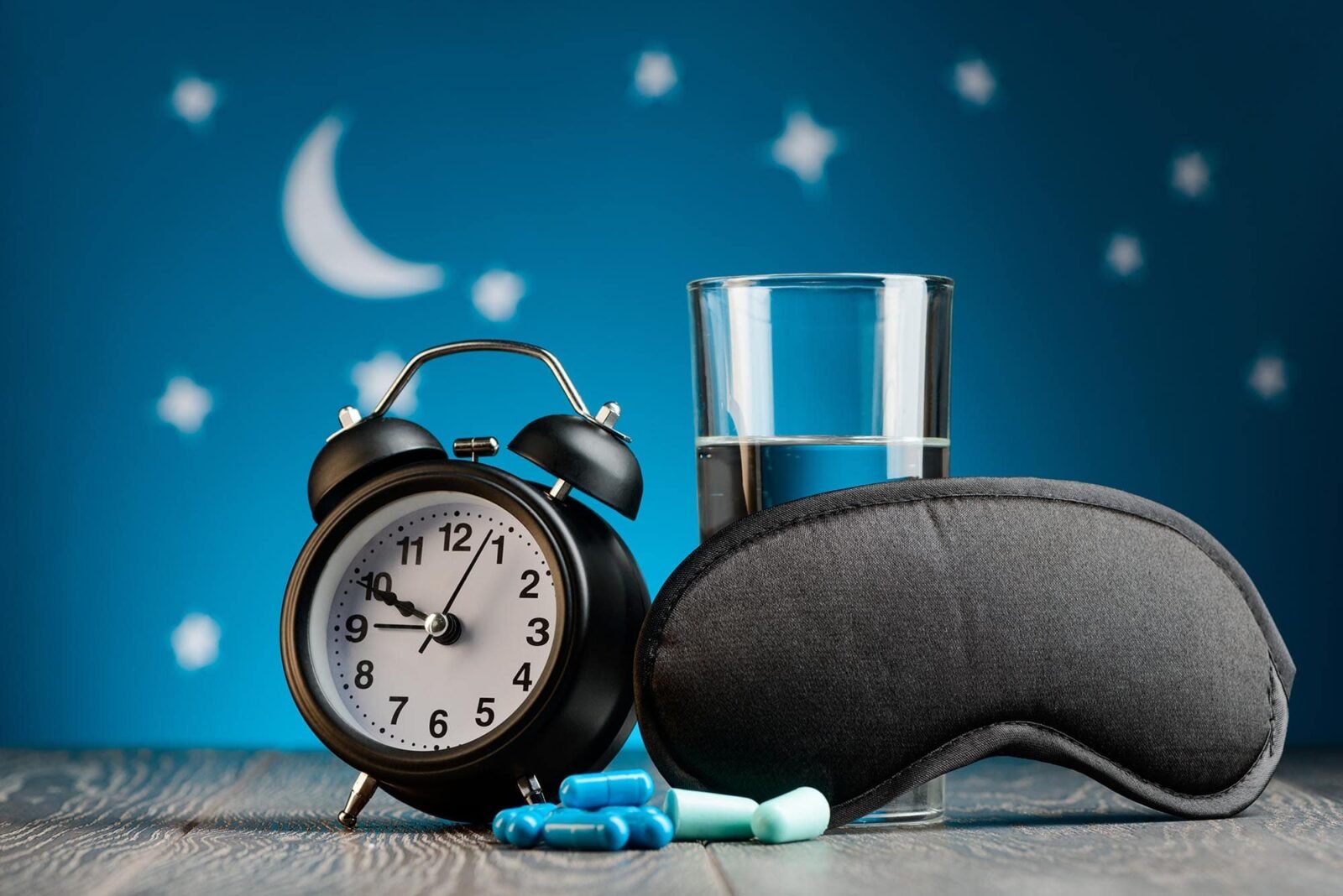
In today’s fast-paced, hyper-connected world, sleep deprivation has quietly become a global crisis, particularly among younger generations. From late-night scrolling on social media to demanding work schedules and the ‘glorification’ of the “hustle culture”, millions of people are sacrificing rest, often without realizing its profound effects on their health and well-being.
According to the Centers for Disease Control and Prevention (CDC), more than one-third of adults [in the U.S.] do not get the recommended seven to nine hours of sleep per night. This trend is even more alarming among millennials (Gen Y) and Gen Zs, who report higher levels of stress, anxiety, and sleep-related issues than previous generations.
But why are we sleeping less, and what are the long-term consequences?
Sleep is a fundamental biological process that plays a critical role in maintaining both physical and mental health. During sleep, the body and brain engage in vital restorative activities such as memory consolidation, emotional processing, immune system regulation, and cellular repair. Adequate sleep is, therefore, essential for optimal cognitive performance, emotional stability, and overall well-being.
When sleep is insufficient or frequently disrupted, it can significantly impair daily functioning. Individuals may experience reduced concentration, slower reaction times, poor decision-making, and increased irritability. For children, the consequences can be even more pronounced, potentially affecting behavior, learning, and academic performance.
Over time, chronic sleep deprivation can contribute to serious health issues. It has been linked to impaired brain function, weakened immune response, and a higher risk of developing metabolic disorders such as obesity and type 2 diabetes. Clearly, prioritizing healthy sleep habits is crucial for long-term health and quality of life.
Excuses For Inadequate Sleep
Screens ‘Hijack’
One of the most significant factors contributing to poor sleep in today’s generation is technology. Smartphones, tablets, and laptops have become an integral part of daily life, but their constant presence—especially at night—disrupts our natural sleep-wake cycles.
Electronic devices emit blue light, which suppresses the production of melatonin, the hormone responsible for making us feel sleepy. A study published in the journal PNAS found that individuals who used e-readers before bed took longer to fall asleep and had reduced REM sleep compared to those who read a physical book.
Beyond the physiological effects, social media and the “binge-watching” culture have also conditioned people to delay bedtime. Scrolling through Instagram, watching TikTok videos, or streaming “just one more episode” on Netflix tricks the brain into staying awake longer than it should. This behavioral shift has led to the rise of “revenge bedtime procrastination,” a phenomenon where individuals sacrifice sleep to reclaim personal time after long work or school days.
Well, if you’re looking for more evidence that sleep is being sacrificed for screen time, look no further than Oxford University Press’s 2024 Word of the Year: Brain Rot! Interestingly, not only are the younger generations sleep deprived, but they are worse for it as their mental and intellectual states deteriorate due to the overconsumption of low-quality online content, particularly on social media.
Hustle Culture Mindset
Modern society often equates busyness with success, creating a toxic cycle where people feel guilty for resting. The “hustle culture” movement promotes the idea that sleeping less and working more is a badge of honor. Influencers and entrepreneurs frequently share their early-morning routines, reinforcing the notion that waking up at 4 AM to work is the key to success. In the illustrious world of hustle culture, sleep is portrayed as a self-indulgent activity for the lazy and unmotivated rather than a human biological need.
Unfortunately, this mindset comes at a steep cost. Chronic sleep deprivation leads to burnout, reduced cognitive function, anxiety, depression, and long-term health problems. Studies show that individuals who sleep less than six hours per night are at a significantly higher risk of developing heart disease, obesity, and even Alzheimer’s disease.
Regrettably, while many in the corporate world promote hustle culture as a driver of productivity and success, it is increasingly taking a toll on employees’ mental health. Though often glamorized as the ‘safest way’ to achievement, research suggests that this relentless push can lead to symptoms resembling Attention-Deficit/Hyperactivity Disorder (ADHD). By demanding long hours and constant output, hustle culture can foster a toxic work environment that ultimately undermines both well-being and performance. In the end, the promise of success often comes at the hidden cost of one’s mental and physical health—realized only when the damage is already done.
Increased Stress and Anxiety
Economic instability, job pressures, academic competition, and social expectations have all contributed to rising stress levels among younger generations. The American Psychological Association (APA) reports that stress and anxiety disorders have reached record highs among Gen Z and millennials, making it even harder for them to unwind and fall asleep.
Stress activates the body’s fight-or-flight response, increasing cortisol levels and making it difficult to relax at night. This results in restless sleep, frequent awakenings, and an overall decline in sleep quality.
Stress can interfere with sleep in multiple ways, with insomnia being one of the most common outcomes. Elevated stress levels can make it harder to fall asleep and often lead to disrupted or fragmented sleep throughout the night. This creates a cycle where lack of rest activates the body’s stress response, increasing the production of cortisol—the primary stress hormone—which in turn makes sleep even more elusive.
When the mind remains active due to daily pressures and responsibilities, achieving the recommended 7 to 9 hours of quality sleep can become a challenge. However, research suggests that adjusting evening habits—such as creating a calming bedtime routine or limiting screen time—can help reduce stress and improve the ability to fall asleep more quickly and stay asleep longer. Fortunately, the age-old practice of journaling remains an effective way to manage stress.
Consequences of Sleep Deprivation
Mental Health Implications
Inadequate sleep and mental health disorders often form a vicious cycle. Sleep deprivation exacerbates conditions like depression, anxiety, and mood swings, while these conditions, in turn, make it harder to achieve restful sleep.
Lack of adequate or high-quality sleep can significantly raise the risk of developing mental health disorders. While insomnia is often seen as a symptom of conditions such as anxiety and depression, research now shows that sleep disturbances can also play a direct role in triggering and worsening various mental health issues—including depression, anxiety, and even suicidal thoughts.
A study by the Harvard Medical School found that individuals with chronic insomnia are five times more likely to develop depression. Similarly, sleep disturbances can increase feelings of emotional instability, making it harder to manage stress and maintain relationships.
Studies on sleep deprivation reveal that even individuals without preexisting mental health conditions can experience heightened levels of anxiety and emotional distress after a poor night’s sleep. For those already living with mental health challenges, ongoing sleep problems are more common and often contribute to a worsening of symptoms, including an increased risk of suicidal behavior.
Impaired Cognitive Function and Productivity
Sleep is essential for memory consolidation, learning, and decision-making. When people don’t get enough rest, their cognitive function declines, leading to poor concentration, reduced problem-solving abilities, and slower reaction times.
In the short term, missing out on sleep—such as pulling the occasional all-nighter—can lead to noticeable impairments in brain function and cognitive performance. These effects might include difficulty concentrating, slower reaction times, memory lapses, and reduced problem-solving abilities. For individuals who experience chronic sleep issues, these cognitive disruptions can become a persistent part of daily life, making it harder to function effectively at work, school, or in social situations.
Over the long term, the consequences of inadequate or poor-quality sleep can become more serious. Studies have linked chronic sleep deprivation to an increased risk of cognitive decline and neurodegenerative diseases such as dementia and Alzheimer’s. Poor sleep may contribute to the buildup of harmful proteins in the brain, reduce brain plasticity, and impair the brain’s ability to clear waste—factors that can accelerate cognitive aging and diminish overall mental sharpness over time.
In the workplace, this translates to lower productivity, increased errors, and higher absenteeism. A study by the RAND Corporation estimated that sleep deprivation costs the U.S. economy over $400 billion annually due to lost productivity and health-related issues.
Physical Health Risks
The long-term effects of chronic sleep deprivation go far beyond just mental and cognitive well-being. Ongoing research has shown that insufficient sleep can significantly impact physical health in several critical ways. For instance, sleep loss interferes with the body’s ability to regulate hunger-related hormones, often leading to increased cravings for unhealthy, high-calorie foods and contributing to weight gain and obesity.
In addition, consistently poor sleep has been found to elevate blood pressure levels and trigger systemic inflammation, both of which are key risk factors for heart disease and other cardiovascular conditions. Beyond that, lack of quality sleep impairs the immune system, making it less effective at fighting off infections and increasing an individual’s vulnerability to common illnesses. These interconnected health consequences highlight the importance of treating sleep as a non-negotiable pillar of overall wellness.
With the growing awareness of sleep deprivation’s dangers, many people are turning to science-backed strategies to improve their sleep quality.
Most Promising Trends in Sleep Optimization
Sleep Tracking Technology
Smartwatches, sleep trackers, and apps like Oura Ring and Fitbit are helping individuals monitor their sleep patterns and identify disruptions. These devices analyze factors such as heart rate, REM cycles, and sleep duration, allowing users to make data-driven adjustments to their routines.
Circadian Rhythm Alignment
Many sleep specialists emphasize the importance of aligning daily routines with the body’s natural circadian rhythm. One key strategy involves getting early exposure to natural sunlight, which helps regulate melatonin levels and supports a healthy sleep-wake cycle.
In contrast, minimizing exposure to screens and bright artificial lighting during the evening can prevent disruptions to that cycle and make it easier to fall asleep. Another crucial habit is maintaining a consistent sleep schedule—waking up and going to bed at the same time each day—to reinforce the body’s internal clock and promote more restful, restorative sleep.
Sleep Supplements and Natural Remedies
The demand for sleep-enhancing supplements has surged in recent years. Melatonin, magnesium, and adaptogenic herbs like ashwagandha have gained popularity for their ability to promote relaxation and better sleep quality.
Other natural remedies include aromatherapy with lavender essential oils, warm baths before bedtime, and meditation practices such as yoga nidra, which has been shown to improve sleep efficiency.
Sleep-Friendly Workplaces and Schools
Some progressive organizations and schools are beginning to understand the value of sleep and are adapting their policies to reflect this awareness. For instance, companies like Google and Nike offer flexible work hours, allowing employees to create their own schedules or take power naps during the day. Additionally, some schools are implementing later start times, based on research showing that teenagers naturally have later sleep cycles, ensuring their schedules align better with their biological rhythms.
Prioritizing Sleep in a Busy World
The modern sleep crisis is a wake-up call—literally. As technology, stress, and societal expectations continue to disrupt sleep patterns; individuals, workplaces, and policymakers must recognize the profound impact of rest on overall health and well-being.
While it may not always be possible to completely unplug from the demands of modern life, making small, consistent changes—such as limiting screen time before bed, embracing natural light exposure, and practicing relaxation techniques—can significantly improve sleep quality.
In the end, sleep is not a luxury; it is a fundamental necessity. Prioritizing rest is one of the most powerful health decisions today’s generation can make, leading to better mental clarity, emotional stability, and long-term physical well-being. The question remains: Will we finally start valuing sleep as much as we value productivity?


